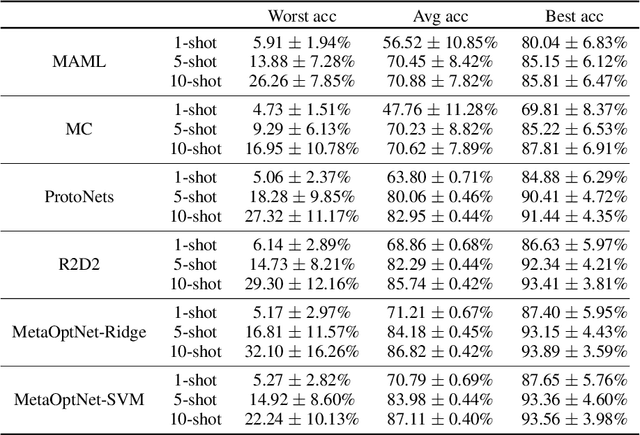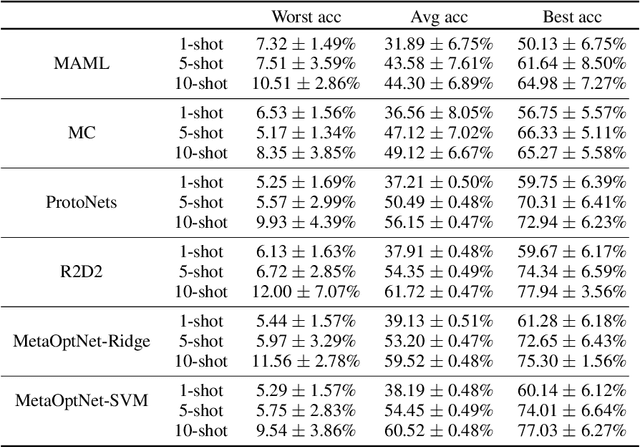On sensitivity of meta-learning to support data
Paper and Code
Oct 26, 2021



Meta-learning algorithms are widely used for few-shot learning. For example, image recognition systems that readily adapt to unseen classes after seeing only a few labeled examples. Despite their success, we show that modern meta-learning algorithms are extremely sensitive to the data used for adaptation, i.e. support data. In particular, we demonstrate the existence of (unaltered, in-distribution, natural) images that, when used for adaptation, yield accuracy as low as 4\% or as high as 95\% on standard few-shot image classification benchmarks. We explain our empirical findings in terms of class margins, which in turn suggests that robust and safe meta-learning requires larger margins than supervised learning.
* Accepted at NeurIPS 2021
View paper on
 OpenReview
OpenReview
 Add to Chrome
Add to Chrome Add to Firefox
Add to Firefox Add to Edge
Add to Edge